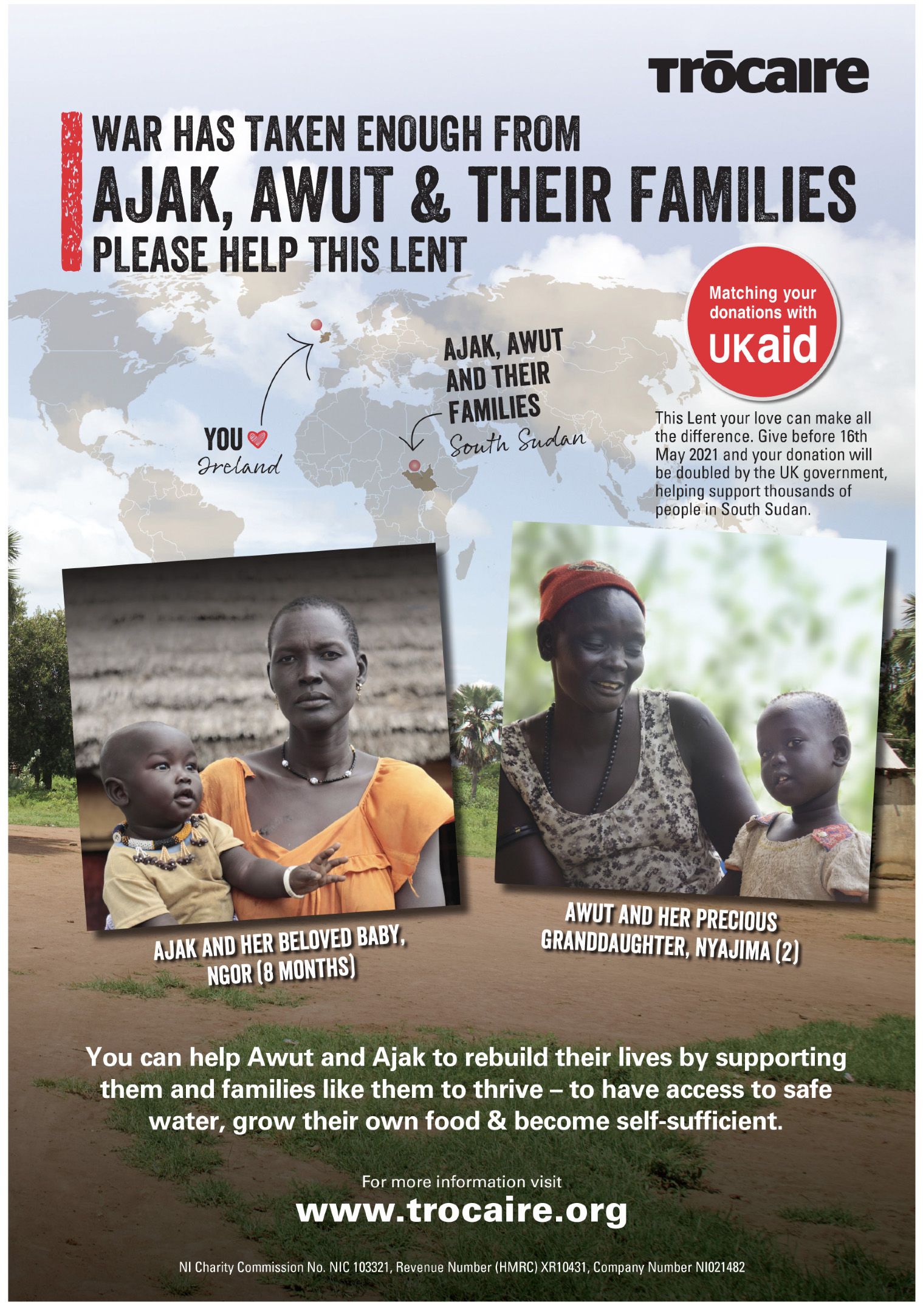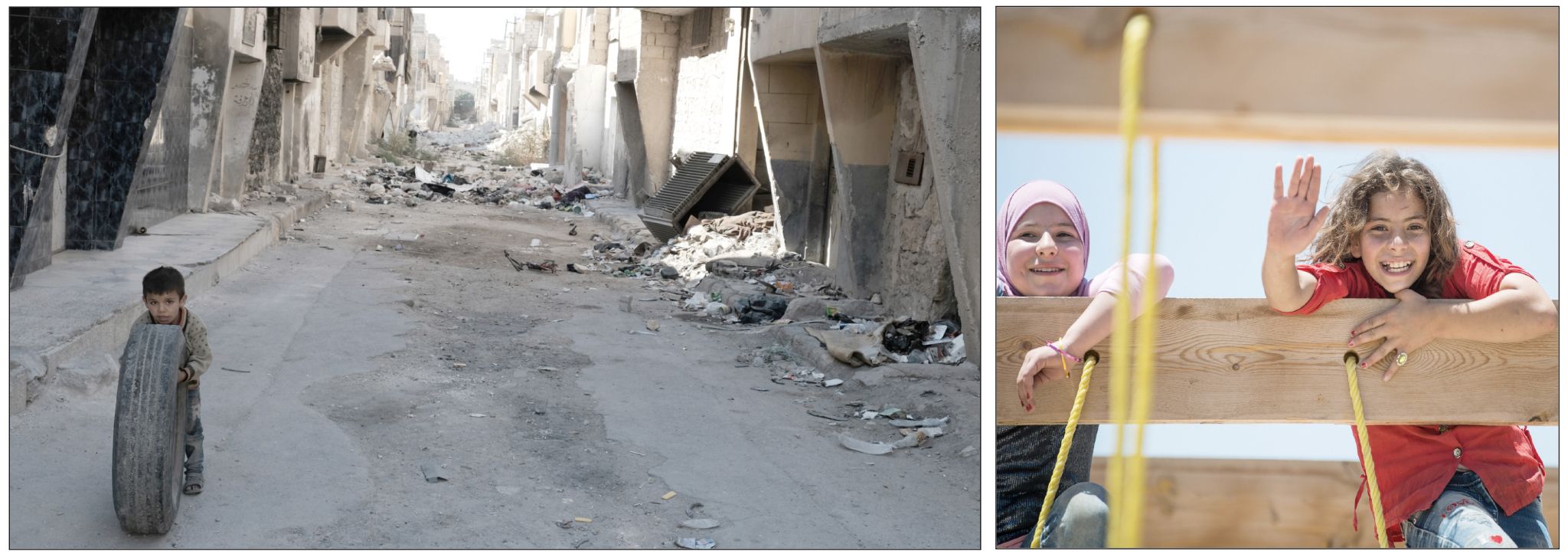This week marks the 10th anniversary of the brutal conflict in Syria. Against the backdrop of the Arab Spring, violence against street protests by Syrians quickly escalated into civil war. Since that time, the war in Syria has become and remains one of the world’s largest and most deadly humanitarian crises.
The country has been destroyed. Much of Syria’s infrastructure has collapsed and whole towns and cities will have to be rebuilt. One in three schools are in ruins or have been commandeered by armed groups and only half of hospitals are functional.
“The Irish community in the past 10 years have shown a huge generosity towards the Syrians and the region. We are still counting on that.”
— Trócaire (@trocaire) March 18, 2021
Rouba Mhaissen, director of SAWA, thanks the Irish people for supporting Syrian refugees. #RememberSyria
Learn more: https://t.co/WXQ9TKep8N pic.twitter.com/H9f8p6ET9k
Some estimates put the economic cost of the decade of conflict at $1 trillion. However it’s the human cost that is most heart-breaking.
5.5 million Syrians have fled to neighbouring countries, mostly to Turkey, Lebanon and Jordan. Within Syria itself, almost 7 million have fled from their homes.
David O’Hare has worked for Trócaire in Belfast for the past 16 years and has travelled to Lebanon and Jordan several times since the start of the conflict to meet Syrians who have had been forced from their homes because of the fighting.

“The impact on the people of Syria of the last ten years of war has been devastating. Over half a million people have been killed by some estimates including 55,000 children. Just think about that for a second - 55,000 is around a tenth of the entire population of Belfast,” said David.
“4.8 million Syrian children have been born since the war started. All these children have ever known is war. Millions of them are not able to attend school. Syrian children are facing some of the most difficult conditions than they have ever had in the ten year conflict. They are more likely now than ever to be in need of aid, go hungry, die from preventable illness or miss school. Over 9 million people are at risk of going hungry in Syria at the moment,” said David.
“5.5 million Syrian refugees in the region are in need of humanitarian assistance. Living conditions are extremely difficult for refugees. In Lebanon, nine out of ten Syrian refugee families are now living in extreme poverty. Many refugees live under tents with only basic essentials which are not enough to guard against harsh weather conditions. Very few are employed and, ten years later, continue to depend on humanitarian assistance. Their status is uncertain and many children have become young adults without a proper education or a stable home. Most don’t know what the future holds,” said David.
10 years of conflict in Syria.
— United Nations (@UN) March 15, 2021
10 years of suffering, loss & resilience.
Listen to the testimonies of people in Syria as they describe a decade of war & express their hopes for a better future: https://t.co/gsUlduZPwm #Syria10 via @UNOCHA pic.twitter.com/vhFq1zfEpq
“When I visited Lebanon and Jordan I spoke to many ordinary families who had lost loved ones or been separated from family members. There is widespread psychological trauma amongst people who have experienced the intense nature of this conflict and those who have been forced to flee. While many Syrian refugees long to leave the dehumanising situation of living in camps and return back to their homes, for most of them it simply isn’t safe to do so. For some, their houses, villages and cities have been destroyed and they have little to return to.
To return to Syria risks intimidation, violence and imprisonment. Forced disappearance or being forcibly conscripted into the army are also real risks.
It is important that any return of refugees is done in a way that is voluntary, dignified and safe.”
David added, “On top of all of these challenges, there have been over 15,000 cases of Covid detected within Syria, and almost a thousand people have died. However these numbers are likely to be far higher, given the lack of testing and the country’s health system being devastated by the war. Case numbers are growing and community transmission of the virus is now widespread. Given the huge problems Syria is already facing, it is extremely worrying that Covid may spread rapidly, particularly in crowded refugee camp settings where social distancing is almost impossible.”
“Thanks to generous donations from people in Belfast, Trócaire has been responding to the Syria crisis since the conflict began. We provide humanitarian assistance both in Syria and with refugees living in Lebanon. We have provided food, shelter, and basic household items. To address the trauma from the conflict we provide counselling and psychosocial support to affected families. We also support people with skills and vocational training to help them begin to rebuild their lives,” said David.
“We will continue to pressure the UK and Irish governments to use their influence to ensure humanitarian access. A fragile ceasefire is holding, but the population of north-west Syria are besieged, and it is vitally important that humanitarian agencies can continue to access this area to keep providing life-saving aid. As well as ensuring humanitarian aid can get into these besieged areas, it is critically important that the international community adequately funds the humanitarian response.”
“Despite the ongoing conflict and the threat of Covid, our brave local partners continue their work on the ground. We will continue to respond to the Syria crisis and support refugees in Lebanon. With the support of people in Belfast we will be there as long as needed,” said David.






